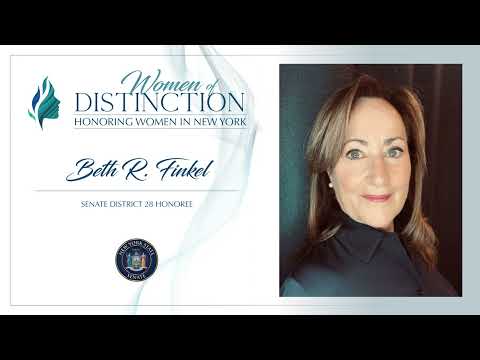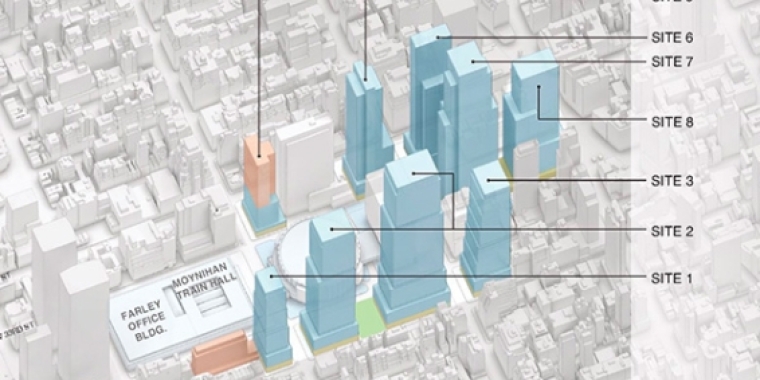
Victory for Tenants: Sen. Krueger Announces Courts to End Electronic Sale of Housing Court Data Used in “Tenant Blacklists”
Liz Krueger
April 25, 2012
New York – State Senator Liz Krueger (D-Manhattan) today announced that the New York State Office of Court Administration will take a key step to end the practice known as “tenant blacklisting.” In a letter, Chief Administrative Judge A. Gail Prudenti confirmed to Sen. Krueger that the names of individuals named as parties in housing court actions will no longer be sold in electronic form by the New York State Unified Court System as of June 1, 2012. Information regarding individual cases will continue to be available through the Unified Civil Courts’ eCourts website and in the Housing Court clerks’ offices.
The previous unrestricted sale of this data in electronic form to tenant screening companies created what are known as tenant blacklists – databases used by landlords and real estate management agents to discriminate against potential tenants. The availability of these blacklists, maintained by hundreds of tenant screening companies across the country, has meant that that any landlord could easily discriminate against potential tenants, purely on the basis of their having been named in previous New York City Housing Court proceedings. Sen. Krueger and a coalition of New York City elected officials and tenants’ advocates brought the issue to Judge Prudenti’s attention earlier this year.
Individuals can end up blacklisted without having done anything wrong. Thousands of tenants are named as parties in Housing Court cases each year because their landlords face foreclosure, as the result a government agency failing to pay a rent subsidy on time, or as the result of an error. Even when these cases are quickly dismissed, the tenants’ information remains in the system and is sold to tenant screening companies, causing long-term damage. In addition, with New York City’s tight rental market and soaring property values, unscrupulous landlords routinely bring Housing Court proceedings to harass rent-regulated tenants and drive them from their homes. With the practice of blacklisting, a landlord could merely threaten to name a tenant as a defendant in housing court, and win or lose, that tenant would be faced with a black mark that could make it difficult or even impossible to secure housing in the future.
In practice, tenant blacklisting has had a chilling effect on tenants’ ability to exercise their legal rights. Tenants legally entitled to withhold their rent to enforce their right to safe and habitable housing have had to fear permanent consequences merely from being named in an eviction proceeding, even if their landlord is unsuccessful in the court action itself.
Comments from Advocates and Elected Officials:
“The use of housing court data to promulgate blacklists is just another way massive real estate concerns have twisted the system to pressure tenants and benefit themselves. When the fear of being ‘blacklisted’ causes many tenants to avoid the court and relinquish their legal rights, access to justice is fundamentally undermined,” said Sen. Krueger. “I applaud Judge Prudenti’s action to protect both New York’s tenants and the integrity of the court system.”
“We are very pleased that the Office of Court Administration has agreed to stop selling the names of litigants sued in Housing Court to anyone, including tenant screening companies,” said Louise Seeley, Executive Director of Housing Court Answers. “This data is used, often unfairly, to deny people housing. This step allows New Yorkers access to the Housing Courts without fear of future discrimination.”
“Tenant ‘blacklisting’ has a chilling effect on the ability of renters to access the courts,” said State Senator Thomas K. Duane (D, WFP-Manhattan). “As an original member of the Tenant Screening Working Group, I am pleased that Judge Gail Prudenti is taking action to help protect due process and tenants’ rights.”
“Securing affordable housing is one of the greatest challenges for working families in New York City and in the communities I represent in the Bronx. The sale of housing court information to tenant screening companies has made it all too easy for New Yorkers to be denied affordable housing,” said State Senator Gustavo Rivera (D-Bronx). “I want to commend the Office of Court Administration and Judge Gail Prudenti for taking steps to ensure that the thousands of New Yorkers who exercise their right to due process in housing court will not be adversely affected. It is vital that we continue to ensure that there are less barriers for individuals and families looking for safe and affordable housing in New York City.”
“Tenant blacklists are one of the most powerful tools working against tenants today,” said New York City Councilmember Daniel Garodnick (D-Manhattan), the author of a 2010 city law requiring disclosure where blacklisting firms are being used. “Tenants who assert their rights in court should feel secure that Courts are not going to make it easier for landlords to hold it against them the next time they try to rent an apartment.”
“Landlords have routinely blacklisted tenants based on nothing more than the fact that they may have appeared in Housing Court. Our courts, as public institutions, should not facilitate this unjust practice,” said Assemblymember Brian Kavanagh (D-Manhattan), who serves on the Assembly Housing Committee and had joined Senator Krueger, other officials, and tenant advocates in pushing for changes in the Court’s policy. “We are grateful that Judge Prudenti has carefully weighed the competing interests and is taking an important step toward greater fairness for tenants who avail themselves of their right to press their case in Housing Court, as well as those who may find themselves in court against their will.”
“I send my sincere thanks to Judge Prudenti on behalf of all tenants in New York who are afraid to assert their legal rights in the Housing Court system for fear of future retribution. Judge Prudenti’s decision is truly a vital change that will have a long-lasting, immensely positive impact on the lives of thousands of individuals across our city,” said Assemblymember Daniel O’Donnell (D-Manhattan). “Given the advent of the internet, many legal policies that have previously worked smoothly and competently are now failing the very individuals they are designed to protect. With this decision, the Housing Court system acknowledged these issues and changed its practices for the better. I hope other areas of our legal system will follow this example and adapt to today’s changed legal environment for the benefit of all our citizens.”
“At a time when access to affordable housing is at an all-time low in the City, we are grateful that the Office of Court Administration took this important step toward protecting tenants against discrimination in the rental market,” said April Newbauer, Attorney-in-Charge of the Legal Aid Society’s Queens Neighborhood Office. “We also thank Senator Krueger for her leadership on this issue.”
“This is a major step forward, both for tenants seeking justice from Housing Court and for New Yorkers looking to find apartments to rent in a tight real estate market,” said David Robinson of the Community Service Society of New York. “Many tenants find themselves in Housing Court through no fault of their own, often because their landlords face foreclosure proceedings or a City agency has failed to pay a shelter allowance or a rent subsidy. These tenants will no longer forfeit the opportunity to find new housing in the future.”
Share this Article or Press Release
Newsroom
Go to NewsroomSenator Krueger 2022 Woman of Distinction
August 26, 2022

Sen. Krueger Submits Testimony To The NYC Districting Commission
August 22, 2022


